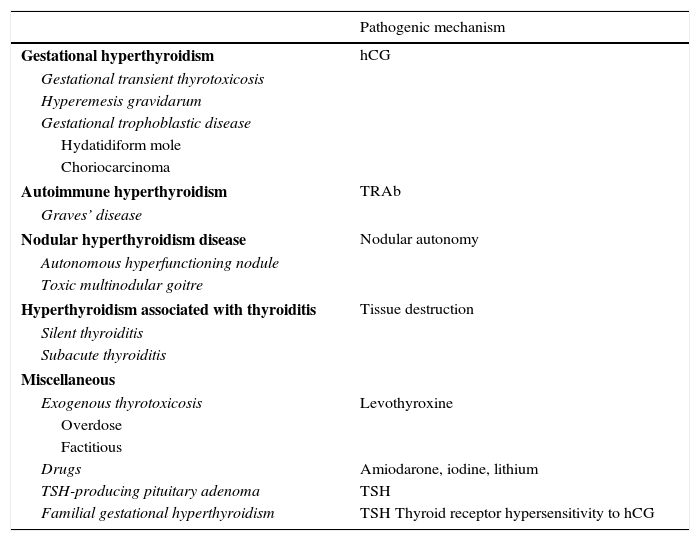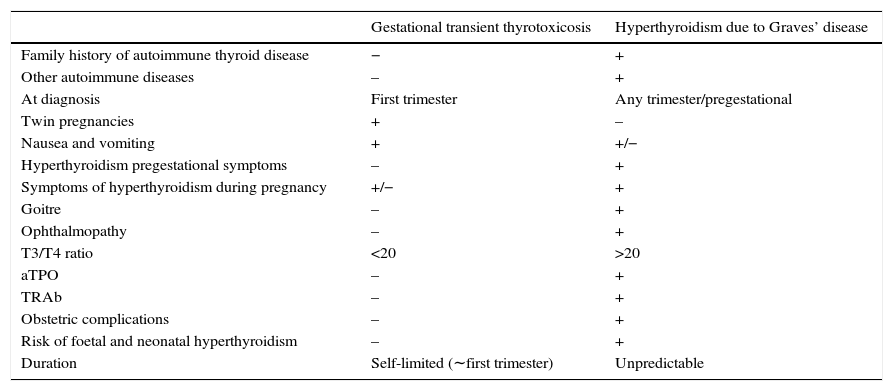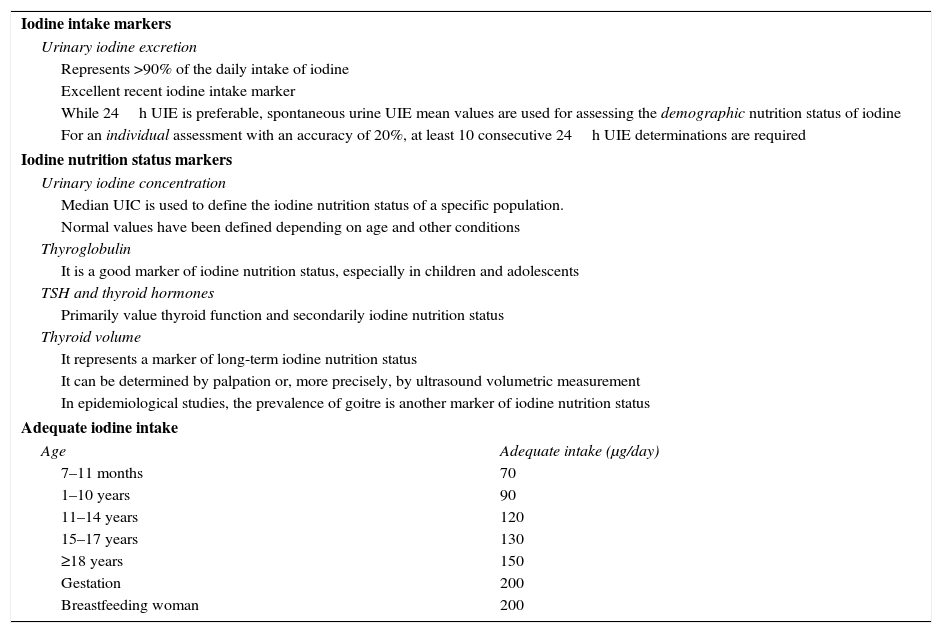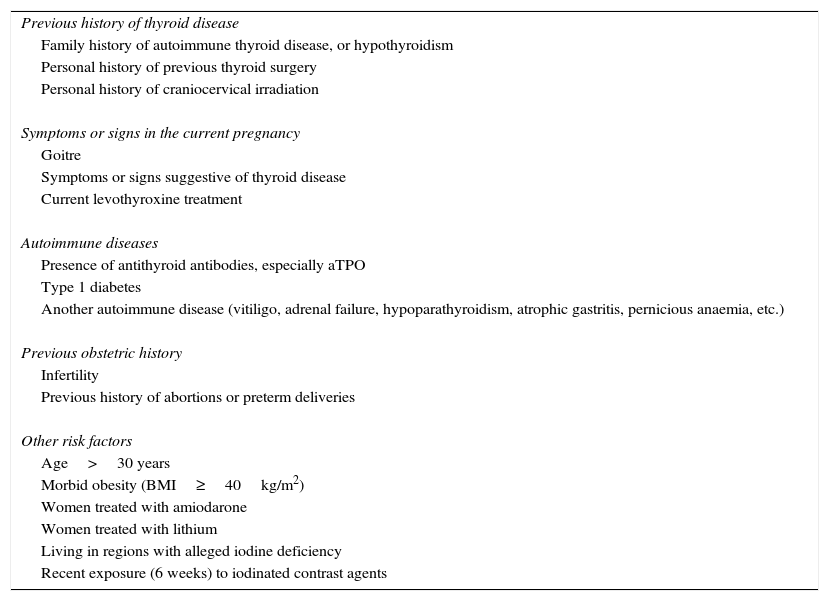Recent clinical practice guidelines on thyroid dysfunction and pregnancy have changed health care provided to pregnant women, although their recommendations are under constant revision. Trimester- and area-specific reference ranges for serum thyroid-stimulating hormone are required for proper diagnosis of hypothyroidism and hyperthyroidism. There is no doubt on the need of therapy for overt hypothyroidism, while therapy for subclinical hypothyroidism is controversial. Further research is needed to settle adverse effects of isolated hypothyroxinemia and thyroid autoimmunity. Differentiation between hyperthyroidism due to Graves’ disease and the usually self-limited gestational transient thyrotoxicosis is critical. It is also important to recognize risk factors for postpartum thyroiditis. Supplementation with iodine is recommended to maintain adequate iodine nutrition during pregnancy and avoid serious consequences in offspring. Controversy remains about universal screening for thyroid disease during pregnancy or case-finding in high-risk women. Opinions of some scientific societies and recent cost-benefit studies favour universal screening. Randomized controlled studies currently under development should reduce the uncertainties that still remain in this area.
Las recientes guías clínicas sobre disfunción tiroidea y embarazo han cambiado la atención sanitaria que se presta a la mujer gestante, pero sus recomendaciones están en constante revisión. Existe la necesidad de disponer de valores de referencia de la hormona estimulante del tiroides por trimestre y área geográfica para el correcto diagnóstico de disfunción tiroidea. No hay dudas sobre la necesidad de tratamiento del hipotiroidismo franco, pero hay opiniones variables sobre el tratamiento del subclínico. Los efectos adversos de la hipotiroxinemia aislada y de la autoinmunidad tiroidea requieren nuevas investigaciones. Es fundamental diferenciar el hipertiroidismo por enfermedad de Graves del llamado hipertiroidismo gestacional transitorio, habitualmente autolimitado. Es importante reconocer los factores de riesgo para la tiroiditis posparto. Para evitar graves consecuencias en la descendencia, se recomienda mantener una adecuada nutrición de yodo durante el embarazo mediante suplementos de este oligoelemento. Continúa la polémica sobre el cribado universal o selectivo de disfunción tiroidea durante la gestación, aunque las tendencias de algunas sociedades y de los últimos estudios de coste-beneficio son favorables al cribado universal. Los estudios aleatorizados y controlados en desarrollo actualmente deberán reducir las incertidumbres que aún persisten en el área de la disfunción tiroidea y el embarazo.












